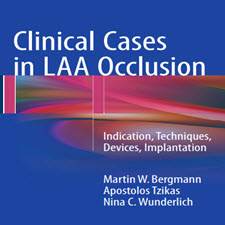Clinical Core Laboratory Testing
ABSTRACT
The clinical laboratory provides a vital service and signifcantly contributes to patient care. It is commonly cited that ~70 % of medical decisions are based on data and interpretive information generated from the laboratory. While this number may be slightly inflated, it is well accepted that a predominant number of critical decisions made by physicians on a daily basis are centered on laboratory test results. Clinical laboratories have been transformed over the past 20 years from being slow and manual to highly automated, high-throughput production-type environments. At the same time, the amount of hands-on experience and time physicians spend in the lab has decreased dramatically. While physicians once played an active role in actually testing patient samples, it is now common for clinicians to never set foot in the laboratory. This disconnect has occurred at a time where the volume and complexity of information generated by the laboratory has grown exponentially. Comprehensive medical student and resident education regarding operation and function of the clinical laboratory is limited and often overlooked due to time limitations of the trainees, who are also attempting to learn many areas of medicine. Furthermore, the amount of material bombarding care providers at all stages in their careers (medical student, resident, fellow, or practicing physician) is immense, and leaves little time to devote to learning the intricacies of laboratory medicine, despite the fact there is heavy reliance on laboratory results to effectively treat patients.
INTRODUCTION
Although its origin is obscure and many variations exist, writers and speakers commenting on laboratory quality often recite the phrase: The right result, on the right test, on the right patient, at the right time. It is a catchy phrase that captures the four most important considerations in medical laboratory services: integrity of laboratory results, effcient use of laboratory tests by medical staff, safeguards against patient identifcation errors, and timeliness. One might add at the right price to this list, since the economics of healthcare delivery are important considerations in clinical laboratory services, as well (discussed in Chap. 2). The importance of laboratory tests in the diagnosis and medical management of patients is widely acknowledged. Some have attempted to quantify the laboratory contribution towards medical care, often citing a statement attributed to Rodney Forsman, the Administrative Director and Assistant Professor of Laboratory Medicine and Pathology at Mayo Clinic College of Medicine in Rochester, MN, that 70% of all medical decisions are based on laboratory data.
چکیده
آزمایشگاه بالینی یک سرویس حیاتی ارائه می دهد و به شدت به مراقبت از بیمار کمک می کند. معمولا اشاره شده است که ~ 70٪ از تصمیمات پزشکی بر اساس داده ها و اطلاعات تفسیری که از آزمایشگاه تولید می شود، استوار است. در حالی که این عدد ممکن است کمی تغییر کند، به خوبی می پذیرد که تعداد قابل توجهی تصمیم گیری های حیاتی که توسط پزشکان به صورت روزانه انجام می شود بر نتایج آزمایشگاهی تمرکز دارد. آزمایشگاه های بالینی طی 20 سال گذشته از آستانه و دستی به محیط بسیار اتوماتیک و با کارایی بالا تولید شده است. در عین حال، میزان تجارب عملی و پزشکان زمان در آزمایشگاه به طور چشمگیری کاهش یافته است. در حالیکه پزشکان یک بار نقش فعال در آزمایش نمونه های بیمار را ایفا می کردند، امروزه پزشکان متخصص هستند که هرگز در آزمایشگاه قرار نمی گیرند. این قطع در یک زمان اتفاق افتاده است که حجم و پیچیدگی اطلاعات تولید شده توسط آزمایشگاه به طور نمادین افزایش یافته است. آموزش جامع پزشکی دانشجویان و ساکنین مربوط به عملکرد و عملکرد آزمایشگاه بالینی محدود و اغلب با توجه به محدودیت زمان آموزش کارآموزان، که سعی در یادگیری بسیاری از زمینه های پزشکی نیز دارند، نادیده گرفته می شود. علاوه بر این، میزان ارائه دهندگان مراقبت های بمباران مواد در تمام مراحل حرفه ای خود (دانشجوی پزشکی، مهاجرین، همکار یا پزشک) بسیار زیاد است و زمان کمی برای یادگیری پیچیدگی های پزشکی آزمایشگاهی صرف می کند، علیرغم اینکه سنگین وابستگی به نتایج آزمایشگاهی برای درمان موثر بیماران است.
مقدمه
اگر چه مبدأ آن مبهم است و بسیاری از تغییرات وجود دارد، نویسندگان و سخنرانان در مورد کیفیت آزمایشگاه اغلب عبارت عبارتند از: نتیجه درست، در آزمون درست، در بیمار مناسب در زمان مناسب. این یک عبارت جاذبه است که چهار ملاحظات مهم در خدمات آزمایشگاهی پزشکی را شامل می شود: یکپارچگی نتایج آزمایشگاهی، استفاده فوری از آزمایشات آزمایشگاهی توسط کارکنان پزشکی، حفاظت در برابر خطاهای شناسایی بیمار و به موقع بودن. ممکن است در قیمت مناسب به این لیست اضافه شود، زیرا اقتصاد ارائه خدمات بهداشتی، ملاحظات مهم در خدمات آزمایشگاهی بالینی است (همچنین در فصل 2 مورد بحث قرار گرفته است). اهمیت آزمایشات آزمایشگاهی در تشخیص و مدیریت پزشکی بیماران به طور گسترده ای مورد تایید قرار گرفته است. بعضی ها تلاش کرده اند تا سهم آزمایشگاه را در رابطه با مراقبت های پزشکی اندازه گیری کنند، اغلب به نقل از بیانیه ای به Rodney Forsman، مدیر اداری و استادیار آزمایشگاه پزشکی و آسیب شناسی در دانشکده پزشکی کلینیک مایو در روچستر، MN، می گویند که 70 درصد از همه تصمیمات پزشکی بر اساس داده های آزمایشگاهی است.
Year: 2017
Publisher : SPRINGER
By : Ross Molinaro • Christopher R. McCudden,Marjorie Bonhomme • Amy Saenger
File Information: English Language/ 115 Page / size: 1.80 KB
سال : 1396
ناشر : SPRINGER
کاری از : راس مولینارو • کریستوفر مککودن، مارجوری Bonhomme • امی Saenger
اطلاعات فایل : زبان انگلیسی / 115صفحه / حجم : KB 1.80


![Clinical Core Laboratory[taliem.ir]](https://taliem.ir/wp-content/uploads/Clinical-Core-Laboratorytaliem.ir_.jpg)
![Emergency Clinical..[taliem.ir] Emergency Clinical..[taliem.ir]](https://taliem.ir/wp-content/uploads/Emergency-Clinical..taliem.ir_.jpg)
![Seizures.in.Critical.Care.A.Guide.to.Diagnosis.[taliem.ir] Seizures.in.Critical.Care.A.Guide.to.Diagnosis.[taliem.ir]](https://taliem.ir/wp-content/uploads/Seizures.in_.Critical.Care_.A.Guide_.to_.Diagnosis.taliem.ir_.jpg)
![Clinical Features of PTSD[taliem.ir] Clinical Features of PTSD[taliem.ir]](https://taliem.ir/wp-content/uploads/Clinical-Features-of-PTSDtaliem.ir_.jpg)
![Chest.Drains.in.Daily.[taliem.ir] Chest.Drains.in.Daily.[taliem.ir]](https://taliem.ir/wp-content/uploads/Chest.Drains.in_.Daily_.taliem.ir_.jpg)
![Orofacial[taliem.ir] Orofacial[taliem.ir]](https://taliem.ir/wp-content/uploads/Orofacialtaliem.ir_-1.jpg)
![Clinical Management of[taliem.ir] Clinical Management of[taliem.ir]](https://taliem.ir/wp-content/uploads/Clinical-Management-oftaliem.ir_.jpg)
![Clinical Approaches to[taliem.ir] Clinical Approaches to[taliem.ir]](https://taliem.ir/wp-content/uploads/Clinical-Approaches-totaliem.ir_.jpg)


![Bladder Pain Syndrome –[taliem.ir]](https://taliem.ir/wp-content/uploads/Bladder-Pain-Syndrome-–taliem.ir_-150x150.jpg)
![Dictionary[taliem.ir]](https://taliem.ir/wp-content/uploads/Dictionarytaliem.ir_-150x150.jpg)
دیدگاه خود را ثبت کنید
تمایل دارید در گفتگو شرکت کنید؟نظری بدهید!